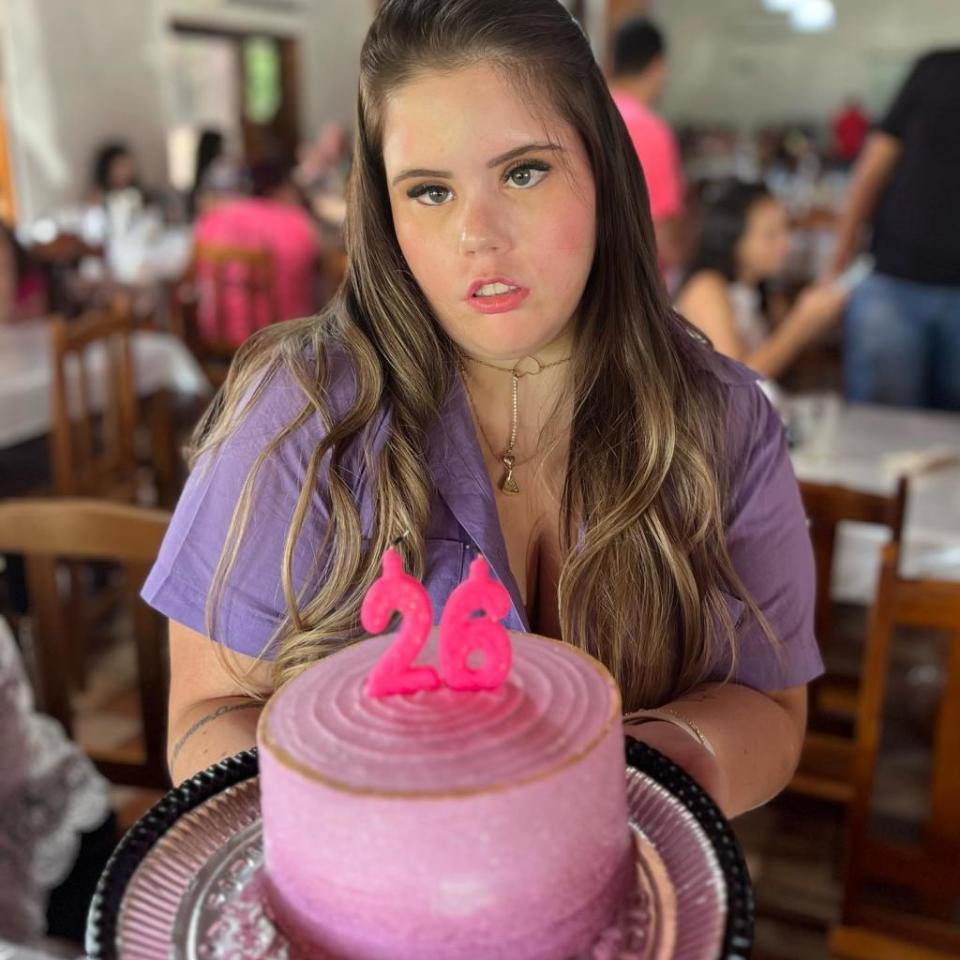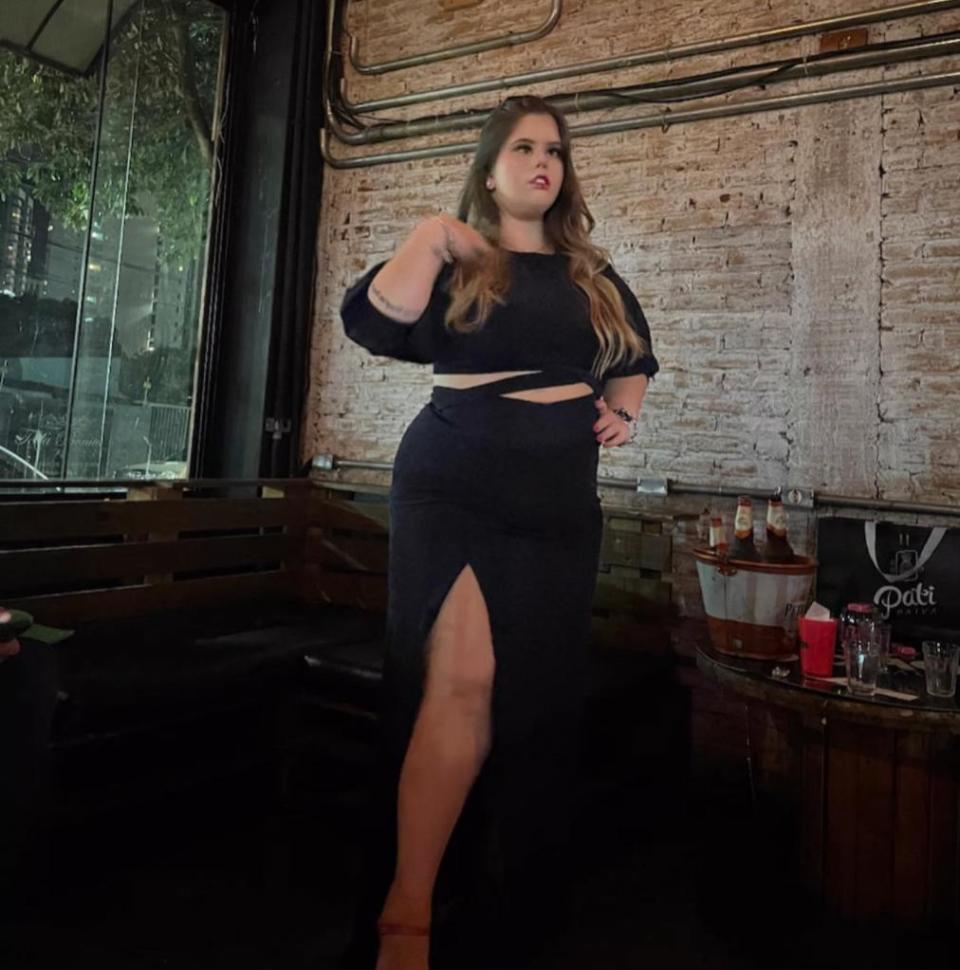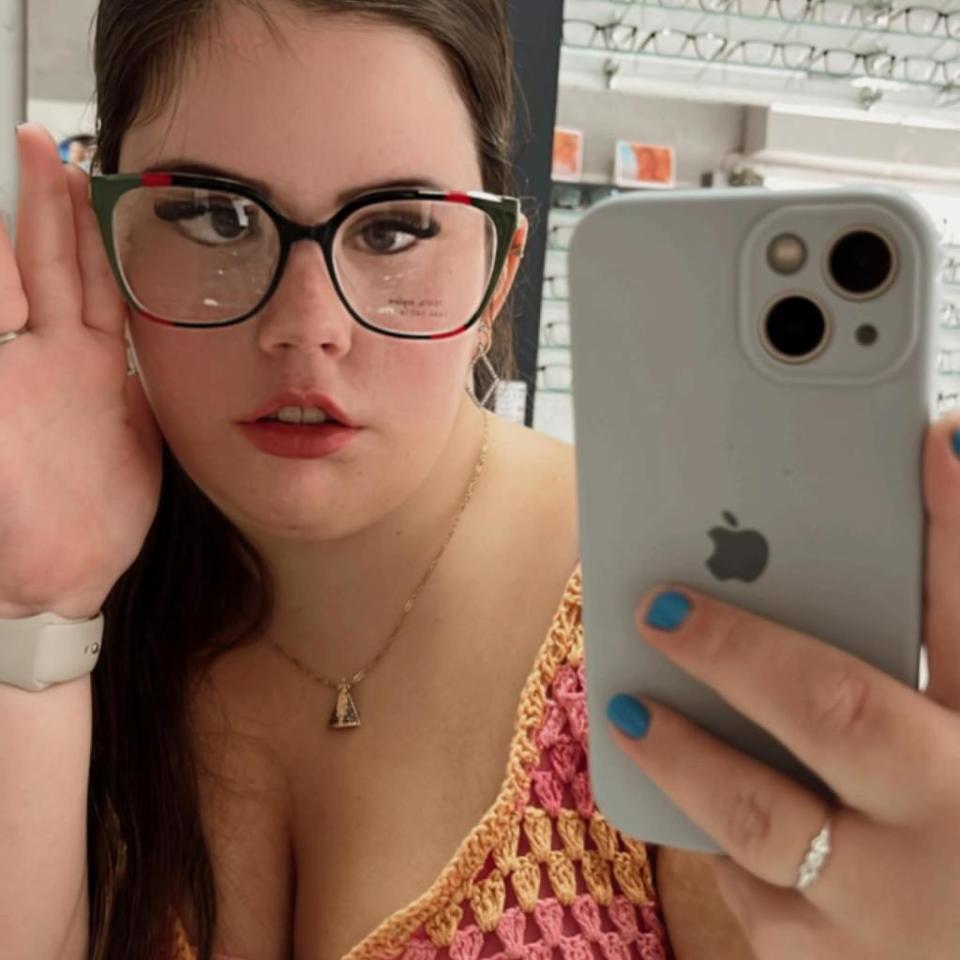I’m an influencer who can’t smile due to a rare condition — I ignore the haters because I’m living the dream
This is no laughing matter.
Smiley influencers can easily bait batches of new followers by batting their pretty eyes and flashing their pearly whites with gleeful grins on social media.
But one trending tastemaker doesn’t have the luxury of luring in fans with a twinkling beam — because she’s physically unable to crack a smile.
“I can’t smile, close my mouth, or my eyes, or show any emotion,” content creator Paula Paiva, 26, of Rolândia, Brazil, tells Jam Press. “I have anxiety because of [this].”
The buzzy brunette explained her uncommon condition to more than 446,300 curious TikTok viewers, saying: “I have a rare syndrome … and it consists of facial paralysis.”
“I have all the muscles in my face,” she continued. “But they don’t work — they are paralyzed.”
Since birth, Paiva has been totally expressionless.
“I ended up in the ICU because they had to give me a tube since I couldn’t feed on breast milk,” she said to JamPress. “The doctor at the time couldn’t determine my diagnosis and said I would have a life expectancy of at most three years.”
After three months and countless tests, Paiva was diagnosed with Moebius syndrome — a neurological disorder that causes facial paralysis and the inability to move the eyes from side to side.
The disorder is caused by the absence or underdevelopment of the sixth and seventh cranial nerves, which control eye movements and facial expression, per the National Institute of Neurological Disorders and Stroke.
Moebius syndrome effects roughly 1-in-4 million people worldwide, including trendsetter, Tayla Clement, 24, from New Zealand, who’s infamously referred to her permanent grimace as “resting bitch face.” In August 2022, the unabashed blond was recruited by a modeling agency to raise awareness to the congenital condition.
For Paiva, becoming a public advocate for the unique impairment meant committing to physical and speech therapies, as well as undergoing a series of eye surgeries.
“I’ve developed as much as I could and improved every day,” said Paiva, noting that her progress has been slow, yet steady. “For example, I only took my first steps at my second birthday party.”
The Gen Z’s lifelong fight, too, came with vicious teasing from schoolyard bullies.
“I remember always receiving different looks, jokes and some hurtful comments,” she recalled. “But the worst period was between the ages of 10 and 12.”
“I heard these things and felt bad,” added Paiva. “So I isolated myself to avoid comments.”
Owing to the intense abuse from tormentors, Paiva’s parents ultimately transferred her to a new school, where she made friends and thrived academically.
As a young adult, the belle began sharing the details of her journey with online audiences in 2020. The brave move sparked an instant interest in folks across the globe.
“I received many comments asking what was different about my face. I made a video talking about it, and it went viral,” said Paiva. “I gained 10 thousand followers in two days.”
The popularity of her posts notwithstanding, Paiva still endures harassment from cruel cyberbullies. However, she says the nasty jibes pale in comparison to the immense joy she feels while shining as a virtual VIP.
“There are comments about my face, my eyes. I posted a video tying my hair, and I received hate,” said Paiva.
“But I’m living my dream of working as an influencer, and that’s a small price we pay.”
“I try to just ignore it.”

 Yahoo News
Yahoo News 




